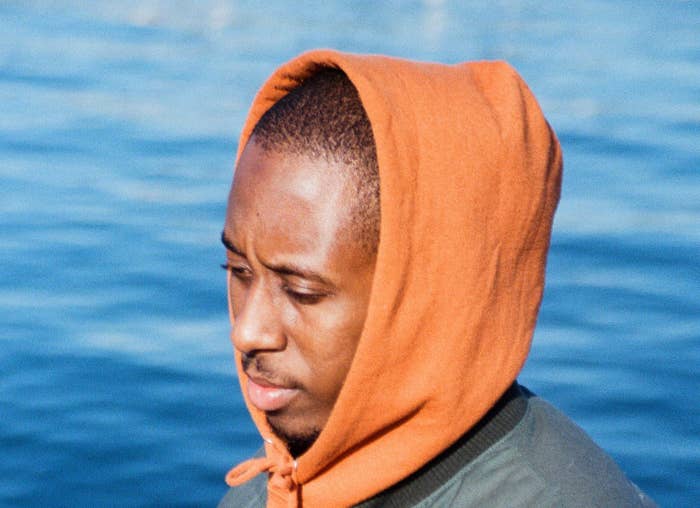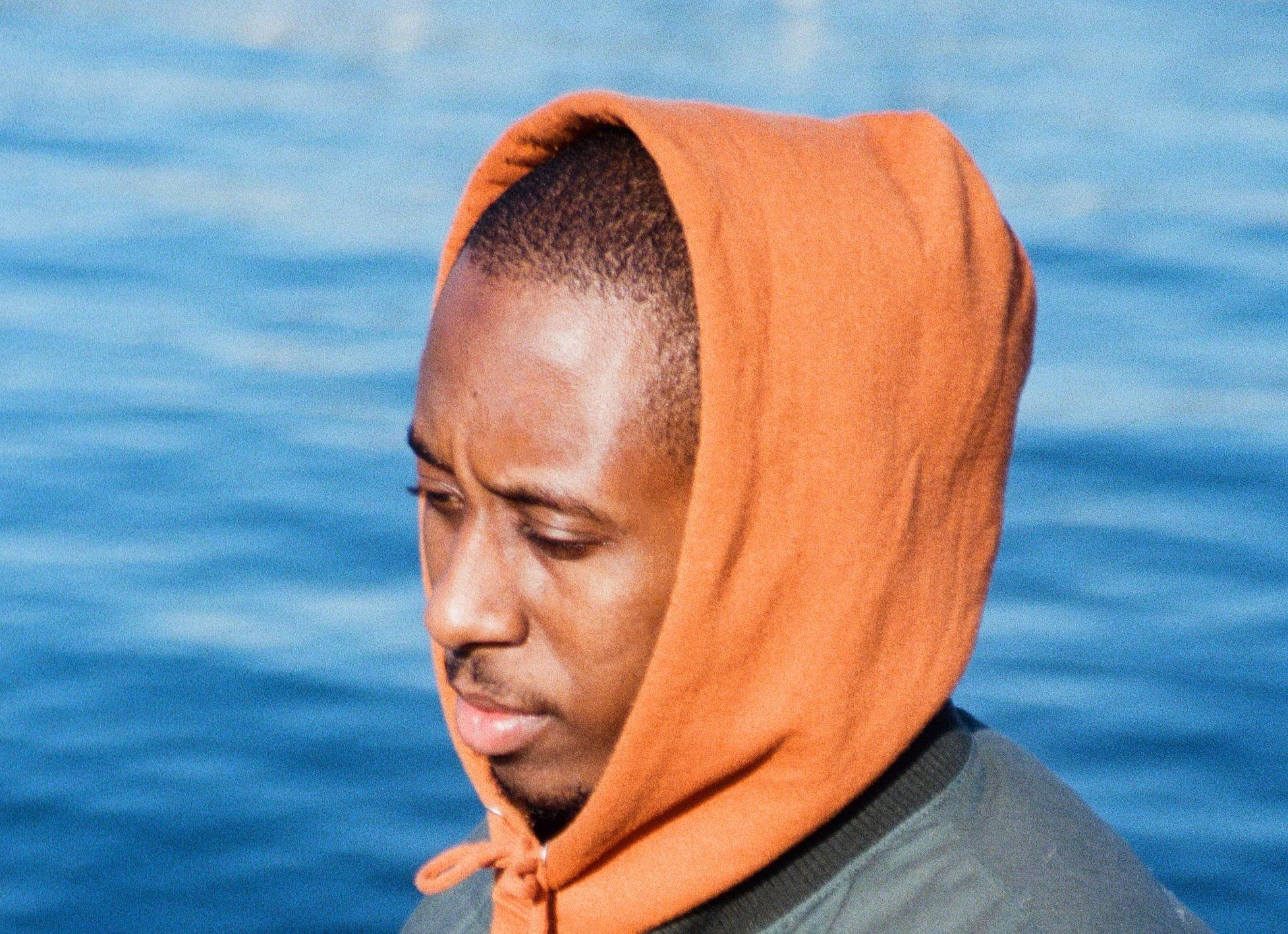
Hyper-specificity in music can help us see through the eyes of a songwriter, even one whose life is wildly different than our own. But abstraction can be equally powerful. When a song gives us room to fill in the gaps with our own experiences, a connection forms that gives the music a special power, to change and grow as we do.
Such is the case with the work of Toronto’s MorMor, a singer, instrumentalist, and producer whose debut EP, Heaven's Only Wishful, saunters through synth pop, folk, and R&B with a head-in-the-clouds charm and commitment to emotional intimacy over genre formality.
In his first interview with Pigeons & Planes, MorMor, who wrote and recorded most of the project on his own, explained what prompted him to get into producing music in addition to writing lyrics. “It seemed like people were making music for the wrong reasons and I knew that I wasn’t going to create anything that didn’t have a purpose,” he said. “Fuck that; I write because I feel like something needs to be said.”
His lyrics are open but familiar—who among us hasn't felt the summer yearning on "Waiting on the Warmth," or the paralyzing waywardness of the title track. The more you listen, the clearer it is that Heaven’s Only Wishful requires time to sink in. Now that it’s been out for a few weeks, we spoke with MorMor to break down the stories and creative process behind all five tracks.

"Heaven's Only Wishful"
On if he knew the song would be a breakout success:
I kind of anticipated something happening. I knew that people would relate if I could deliver a sense of honesty, that there’d be some people in the world that would be able to connect to it.
On how Hitchcock’s Rear Window helped inspire the track and its video:
I feel like I related to it visually, because first of all I love the aesthetic of it, but what I feel is so brilliant about that movie is since there isn’t much movement, yet it captures your attention. I just feel like I wanted each shot to have a purpose and a sense of meaning. I feel like sonically that particular film really helped me too, because I had never really left Toronto at that point, and I felt like I was kind of in a cycle of being stuck at home, which definitely had some influence on the music.
On the song’s hypnotic, repetitive percussion:
The concept of being locked in that room, that’s why I decided to have the drums beat you over the head in that way, and there aren’t many changes rhythmically. It was just to have that redundant feedback loop. That’s something I felt...I tried a bunch of different patterns, and the one that ended up on the song helps capture the feeling more than anything.
"Lost"
On the song’s outro:
The outro was originally the intro, so the song started with the outro, and I just felt that it would be really cool if I put that at the end and like, came up with another song that was tied into that one. My experimentation, that’s kind of why I say that line at the end [“I just try to be different, but I’ll give them what they want"]. I know how to create a proper structure and chord progression, so I was kind of just toying with that...I think I’m just constantly creating short-form ideas, and sometimes I just piece them together, or sometimes I’ll build a full song out of something. I tend to do that pretty often.
On the unique chord progression:
The song started on a guitar because it was the outro, so it just had that effected guitar, and the lyrics kind of just came, it was a freestyle. Then I played around with the synths and created the chords that became the verses.
On the meaning of “lost in your lust” and the song as a whole:
At that time, I was working a retail job, and a lot of the situations I found myself in made me feel that people are just kind of floating and coasting through life in a way. I think that really inspired that lyric, and I think that’s why the opening line is “I think they don’t have a side.” I feel like people weren’t willing to voice their opinions, at least the people I was around, and it was really affecting me strongly.
"Whatever Comes to Mind"
On the connection to “Heaven’s Only Wishful”:
“Heaven’s a wish / Paradise is lost to me” was definitely a play on that song. I like to do that sometimes, it fits the feeling of the project. I think with “Whatever Comes to Mind” it was really a practice, in a sense that’s why the title is what it is. I was really trying to get out of my patterns and just allow myself to express myself completely without overanalyzing everything. It helped me get out of a certain writer’s block, and I think it’s a little bit more playful and has more of a bounce to it rhythmically and with the main melody.
On the line “You’re running from your life ‘til it finds you”:
I feel like people are very distracted at this moment, and I felt that people had been led in ways to places that they don’t necessarily desire to be in, and I think you might have an idea of what you want, or think you want, more than what you might actually want. So you might be striving for something because the idea of it sounds wonderful, but once you achieve it, it might not be what you were ever looking for. You still might not feel fulfilled.
On having Badbadnotgood’s Matty Tavares contribute to the track:
Matty and I have become pretty close because we literally live a couple blocks away from each other, and through that I’ve gotten to know Charlotte [Day Wilson], I hang out with them on occasion...I think for me when it comes to collaboration it’s more about the personal aspect of it, me feeling a connection to the human being, rather than just getting someone to do something for me. It was more like a bonding thing than anything, I could have also not had him on the song.
"Waiting on the Warmth"
On the vocal delivery:
I was experimenting with that because I felt that was kind of a different chord structure than I was used to, and I felt that singing down there would give it a completely different feel than if I sang at a higher register. It would’ve been overkill, it would’ve been just another pop song, and I wanted to find a way to play with that medium.
On making a pop track:
I felt I wanted to experiment with making a dance song, because I envisioned the feeling of walking through the city, or wherever you’re at, or taking public transit, and just having different feelings come out through the project. I felt like it needed to have something a bit more upbeat…I personally don’t like music that is preaching at you. For me it’s definitely a music-first thing, and the feeling matters a lot to me.
On lyricists who inspire his style:
I like Lou Reed, Bob Dylan, The Beatles, Pink Floyd and Syd Barrett. I like the way they sing and I appreciate them as writers.
"Find Colour"
On what “finding colour” is supposed to mean:
For me at least, it’s finding a connection and any sense of purpose, without trying to be overly preachy. And coming out of any dark places that you might be in at the moment, being able to get out of that.
On how finishing the track in Los Angeles vs. Toronto affected its sound:
It was enjoyable, because on the other songs I had recorded them with a friend or by myself, and I was fortunate enough to have an engineer with me for that song, so I was able to get some sounds and be able to move in a more efficient way, which was cool. It enabled me to be a little bit more free.
Listen to MorMor's Heaven's Only Wishful EP below, and read our first interview with him here.




